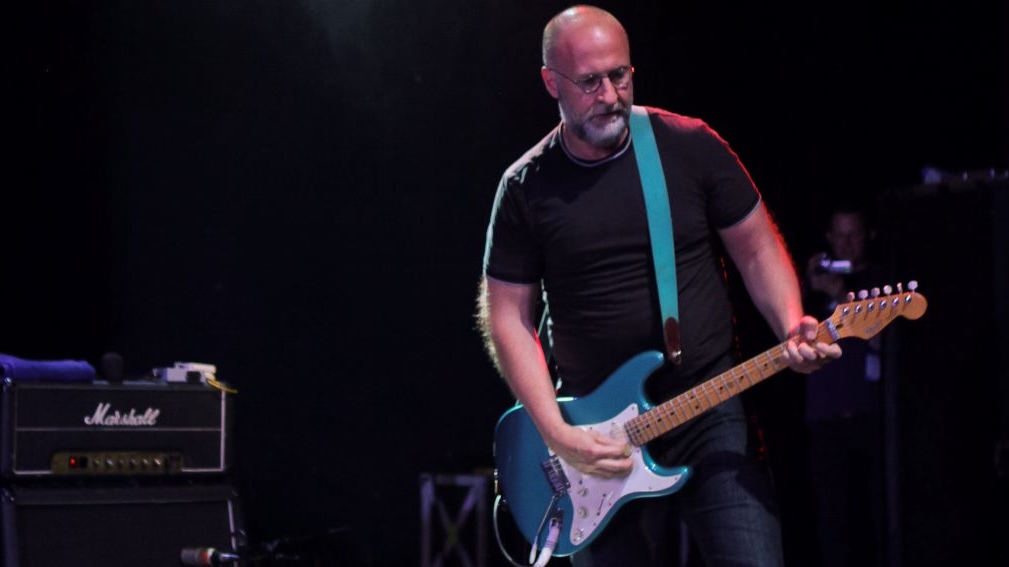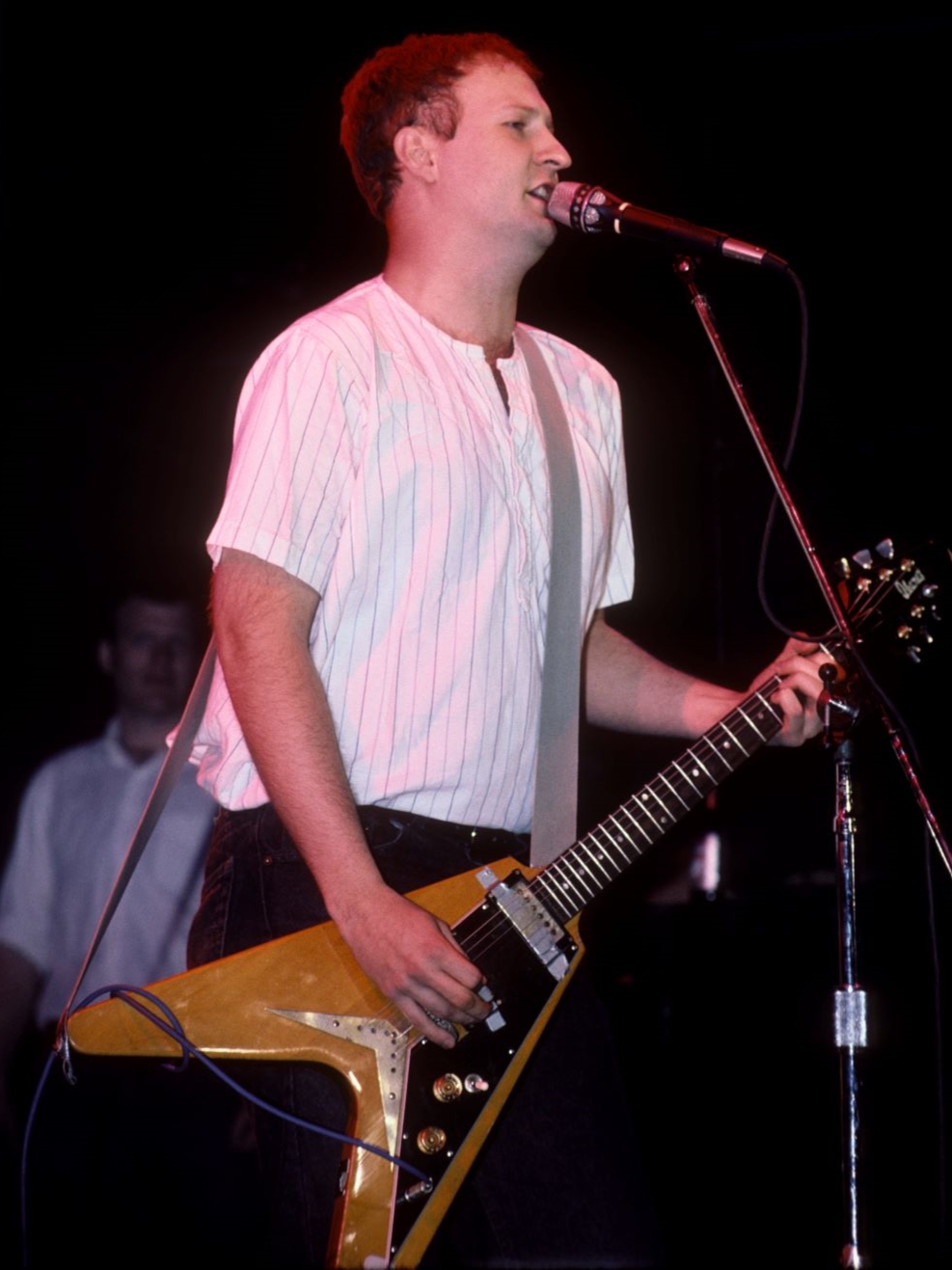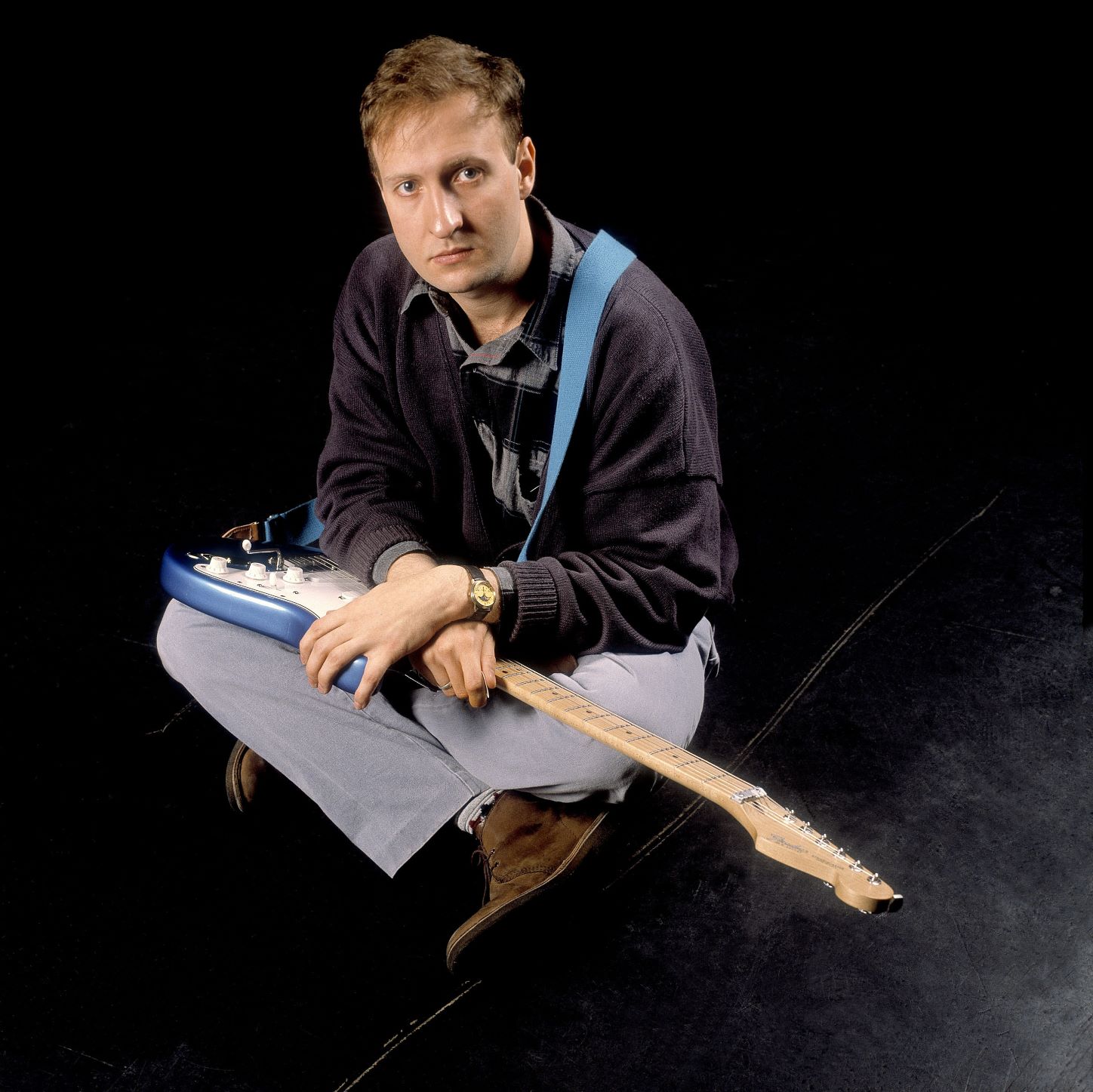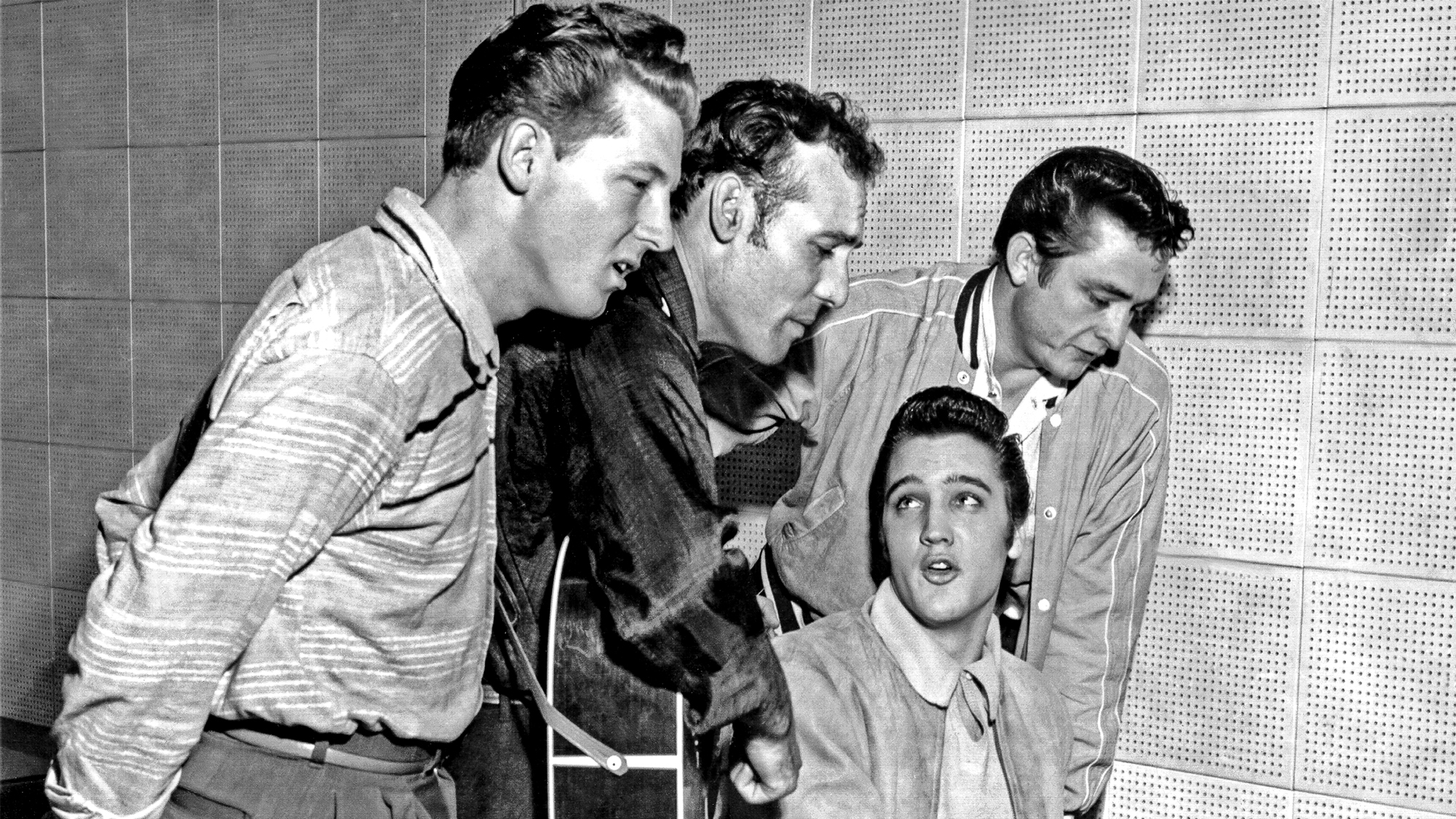
All the latest guitar news, interviews, lessons, reviews, deals and more, direct to your inbox!
You are now subscribed
Your newsletter sign-up was successful
Over a remarkable 40-year career as a member of the bands Hüsker Dü and Sugar, and as a solo artist, Bob Mould has garnered his fair share of huzzahs and hosannas.
His aggressive and highly dramatic signature guitar style was famously admired – and emulated – by bands like the Pixies and Nirvana, among others, and a number of his albums have topped critics’ polls and “greatest records of all time” lists.
All of which the 61-year-old singer-songwriter and guitarist takes with healthy doses of humility and perspective.
“I think I’m the same as any musician,” he says. “I’m grateful when anyone pays attention to the work I do, let alone when colleagues or other people make such wonderful comments about it.
“To me, it all goes back to when I heard the first Ramones album and thought, Wow, anybody can do this. That’s no slight to the Ramones; I’m just talking about the simplicity and beauty of it.
“To go from that day to today, talking about ‘greatest albums of all time’ – that’s quite a leap and a stretch.”
Abrasive and bruising guitar work has long dominated Mould’s oeuvre, although there have been fascinating detours into introspective, acoustic guitar-based songs and even a dalliance with electronic music.
All the latest guitar news, interviews, lessons, reviews, deals and more, direct to your inbox!
“I like to try new things occasionally, particularly if I’ve stayed at one thing too long,” he explains, “but I always seem to come back to a sound that I adopted back in my youth.”
At the center of it all is his artful, muscular rhythm guitar playing – earth-moving stuff crafted from equal parts British Invasion (Pete Townshend looms large here) and New York punk.
“I’m pretty comfortable saying that I excel at rhythm guitar,” he says, “even more so as I get older and age affects the way that I play and the fury I put into it.”
I always seem to come back to a sound that I adopted back in my youth
Bob Mould
Mould points out that a strong, economical rhythmic sense was essential in his early Hüsker Dü days.
“We were a three-piece, so automatically I had to cover a lot of sonic ground, even when I was taking a solo,” he says. “That began to inform my songwriting, knowing that I could only solo a certain way.
“That’s something Townshend did with the Who. Suddenly you’re writing a lot in E, A, D, G and B – keys where you can build chord structures and still have the I chord or the IV or V chord resonating as you’re playing a solo.
“You write to fit your playing.”

Throughout his Hüsker Dü years, Mould played a Flying V-shaped Ibanez Rocket Roll that he purchased on a whim at a music store.
“I was a big New York Dolls fan, and this store had a poster of Syl Sylvain playing a Rocket Roll,” he recalls. “I looked at the poster, turned around and saw the very same guitar on sale. I was like, ‘I’ll take that one.’”
At the end of Hüsker Dü, Mould began playing Fender Stratocasters. His first was a similar impulse buy, but it led to a decades-long association with the model.
“I walked into a music store and saw this blue Strat. I asked the guy if I could play it, and he said, ‘Sure. What kind of amp do you want to put it through?’ I said, ‘No, no, I don’t need an amp. I just want to check the guitar out.’ And within 15 seconds of playing it, I knew it was the guitar.”

He underscores this point. “Anybody who’s looking to buy an electric guitar, don’t worry about the electric part. Pick up the guitar and play a few chords unamped. You’ll know right away if it has something to say. You’ll know if it feels right.
“You can deal with pickups and knobs and things later. Concentrate on the wood of the guitar. If it feels good and sounds good unamped, you can figure out the rest.”
Here, Mould discusses five songs from his brilliant career…
1) Hüsker Dü | “Something I Learned Today” from 'Zen Arcade' (1984)
“We were prolific. I mean, we were writing constantly. We were in this cycle in that you write enough songs to have what you think is an album. Then you record the album and wait a few months for it to come out. Then you tour to show people these new songs in the live setting.
“When you finish the tour, you write new songs to record a new album, and you keep repeating that.
“‘Something I Learned Today’ was a great opener for Zen Arcade. Technically, that first-position B chord could be described as a hallmark chord of mine. I think I’ve exhausted every possible permutation of how you could write an entire song without ever moving off of that chord.
We were prolific. I mean, we were writing constantly
Bob Mould
“This song is a perfect example of that, where I’ve basically frozen the D and G strings in that first-position B, and I’m playing the bass part on the two lower strings. I do all of that without ever moving from that position.
“I could also leave the high B and sometimes sneak in the high E completely open, and I’ve got the two middle strings frozen as the foundation of the chord.
“At the same time, I can walk all of the chord changes around with the lower two strings. So that’s the hallmark. I’ve lost count of how many songs I’ve written in the position.”
2) Hüsker Dü | “Celebrated Summer” from 'New Day Rising' (1985)
“It was a pretty logical extension of the pop sensibility that we started showing on Metal Circus [the group’s 1983 E.P.].
“There was some melodic stuff on that album, but on New Day Rising we amplified those moments and began to move away from the augmented dissonant songs and hardcore songs, like we did on some of the Zen Arcade stuff.
“I hope it wasn’t a stretch or a surprise. I thought it made sense for the band.
On 'New Day Rising' we […] began to move away from the augmented dissonant songs and hardcore songs
Bob Mould
“In the middle of the song, there’s a break in which I played a 12-string acoustic. Very Townshend. The whole idea of the song – that sort of triumphant, thematic longing for last summer, or looking forward to next summer – felt like a Townshend idea circa Quadrophenia or Tommy.
“To have a complete acoustic break and return to electric fury, and then another denouement – it was more sophisticated than what we had done before. We had used acoustics previously, like on ‘Never Talking to You Again,’ which is one of [drummer/singer] Grant Hart’s greatest songs.
“That was all acoustic. Soon we were going back and forth. We’d have an electric guitar part and an acoustic part. It was an evolution of two things we used to do separately.”
3) Bob Mould (solo) | “Sunspots” from 'Workbook' (1989)
“After a while, Hüsker Dü had difficulties, and eventually the difficulties got to the point where it was time for the band to end. I moved to a farm in Northern Minnesota and spent a year in isolation. All I did was feed chickens and relearn how to play the guitar.
“I would become a different type of musician. I didn’t want to start another band that sounded like Hüsker Dü. I wanted to have my own identity, so I started listening to different types of music – Celtic music and Appalachian folk music.
“I had just bought my first Strat, which is still my go-to guitar. From the maple neck and the contour of the body, versus the rosewood neck on the Ibanez ‘Flying V’ and the shape of the guitar – it all led me to approach the guitar differently.
In some ways, the song was really a lesson I gave myself
Bob Mould
“I don’t remember when, how or why I wrote ‘Sunspots.’ I was probably just messing around with neoclassical motifs and trying to learn how to fingerpick. In some ways, the song was really a lesson I gave myself.
“It was a wonderful gift and a great fortune to have a song like this to announce myself to the world, because it was such a stark contrast and a sharp break from what people may have expected.
“They probably bought the album thinking, Oh, he’s going to come out with fury and anger and vindication. And it was the quietest of moments.”
4) Sugar | “If I Can’t Change Your Mind” from 'Copper Blue' (1992)
“I started messing with things like alternate tunings and capos. On this song, I capo the neck at the third fret, so it moves what would normally be a cowboy D chord to a cowboy F.
“The song has been written so many times before. If this were ‘My Sweet Lord’ for me, I would be fearing a lawsuit from the people who wrote ‘The Lion Sleeps Tonight.’
“We recorded the song with my co-producer and co-engineer, Lou Giordano. Typically, I produce my own work and look to my engineers for critiques of performance and things like that.
I started messing with things like alternate tunings and capos
Bob Mould
“But on this song, Lou said to me, ‘Don’t you think that guitar solo is a little short?’ He started counting it out and said, ‘It’s only eight bars. It’s really beautiful, but it goes by so quickly. Shouldn’t you stretch that out?’ And I was like, ‘Mmm... Nah. It’s a pop song. Economical – get in, get out, and let’s get home as quick as possible.’
“Lou really wanted me to double the length, but I was trying to be mindful of pop sensibilities.
“The words are very poignant and heartfelt. And yeah, for somebody who tends to write from the glass half-empty side of things to have a song where the glass is much fuller than half is always a blessing for me.
“When I get a happy one, I’ll gladly take it.”
5) Bob Mould (solo) | “Next Generation” from 'Blue Hearts' (2020)
“‘Next Generation’ is aspirational. As I was writing those words in 2019, we were deep in the dark times.
“I realized that I wanted to look back at those moments in 1983, for instance, when the government and religion conspired to make my life a living hell; that along with feeling that same kind of marginalization being put upon me and anybody who wasn’t a rich white hetero male with some kind of weird power in government.
"All of that ended up being Zen Arcade.
“With this song and almost all the Blue Hearts album, those old tunes said to me, ‘Man, you did all of that with nothing. Go back and take a look at how you did it, not by copying it but just by going back and reflecting on how simple it is to affect change when you really believe in what you’re doing and saying.’
Structurally, the song hits my other sweet spot. It’s not first-position B; it’s first-position G
Bob Mould
“So I’m taking those feelings from 1983 and updating them in an age-appropriate and society-appropriate way for what we were facing in 2019 and 2020. It was like, ‘How do we rectify this?’
“Structurally, the song hits my other sweet spot. It’s not first-position B; it’s first-position G, whether it’s open nut or wherever the capo lands.
“As I get older, that chord has sort of become my recliner and a good book. First-position G – it all starts and ends there. I’ll just pick up a guitar and start playing, like I did in my first days, and I’ll land on that chord.
“It’s amazing how many songs you can write with it.”

Browse Bob Mould's catalog here.

Joe is a freelance journalist who has, over the past few decades, interviewed hundreds of guitarists for Guitar World, Guitar Player, MusicRadar and Classic Rock. He is also a former editor of Guitar World, contributing writer for Guitar Aficionado and VP of A&R for Island Records. He’s an enthusiastic guitarist, but he’s nowhere near the likes of the people he interviews. Surprisingly, his skills are more suited to the drums. If you need a drummer for your Beatles tribute band, look him up.
